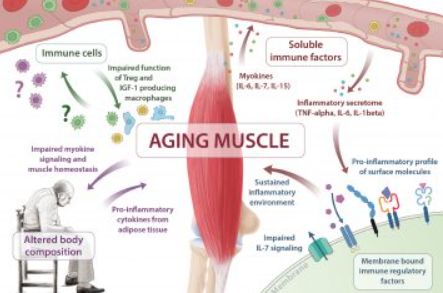People are born with tens of thousands of HSC cells, which allow for the long-term generation of blood and immune cells, keeping them safe from infections.
They can divide to produce new stem cells or differentiate to form distinct immune cell lineages. This allows the body to achieve the essential cell balance to combat infections while maintaining adequate HSCs for optimal blood formation.
As humans age, their HSCs mutate, resulting in genetically distinct subpopulations or loss of function mutations (haematopoiesis). This occurrence is linked to an increased risk of blood cancer, stroke, and heart disease.
Inflammation and Infection Contribute to HSC.
The study’s primary author, Dr. Katherine King, an associate professor at Baylor College of Medicine and Texas Children’s Hospital, notes that this is the first time long-term inflammation and infection have been linked to CHS. The study was published in the Cell Stem Cell journal.
This study provides crucial insights into the processes by which inflammation produces CHS and demonstrates the critical function of DNMT3a in the regulation of HSC response to infection.
According to King, earlier studies have indicated that infection inhibits HSCs’ ability to maintain a calm stem cell state. HSC differentiation was delayed when exposed to a systemic bacterial infection over an extended period of time.
Although this helped develop enough cells to combat the illness, it also reduced bone marrow HSCs by 90%. On the other hand, the HSCS in lab mice lacking the Dnmt3a gene did not differentiate much. They genuinely self-renewed to produce additional HSCs.
They undertook the study to test their hypothesis that differentiation and greater Dnmt3a levels promote duplication, allowing them to outperform normal HSCs in the battle against chronic infections.
Different viral or bacterial infections, as well as chronic inflammatory disorders such as hepatitis, TB, and IBS, cause the immune system to release IFNy, which results in a variety of protective immunological responses.
The study’s authors are pleased with the results, which have paved the way for further research. They demonstrated how chronic inflammation produced by infections and autoimmune diseases might impair immunity as people age
It also emphasises the importance of DNMT3a in regulating immune responses during infections and stress.
After reading this text you can also read about: 8 Simple Ways to Say Goodbye to Stubborn Belly Fat



